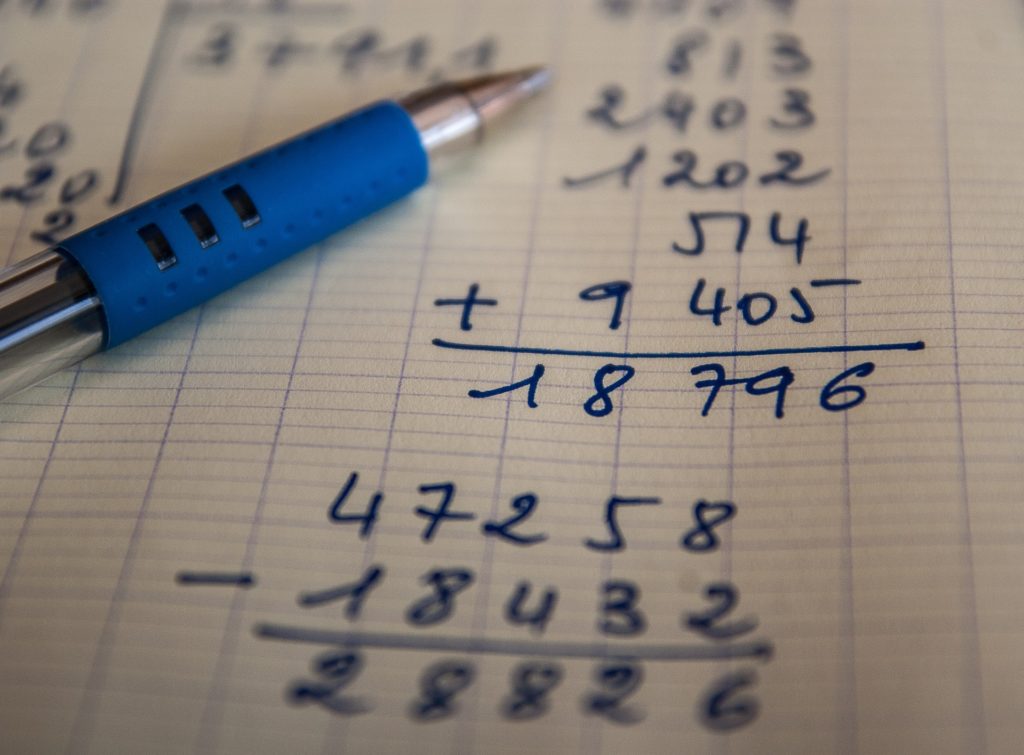If you work and earn money in Japan, taxable income is inevitable. Taxable income refers to the portion of an individual’s annual income that tax can be imposed on. Since taxable income changes depending on income and deductions, it’s important for anyone to know the system of it.
Therefore, in this article, I will explain taxable income and deduction in an easy-to-understand manner.
- How’s Taxable Income different from Income in Japan?
- What is Deduction in Japan (控除 Koujo)
- Employee Income Deduction (給与所得控除)in Japan
- Income Deduction (所得控除) in Japan
- 1. Basic Deduction
- 2. Miscellaneous Loss Deduction
- 3. Medical Expense Deduction
- 4. Donation Deduction
- 5. Social Insurance Deduction
- 6. Small Business Mutual Aid Premium Deduction
- 7. Life Insurance Deduction
- 8. Earthquake Insurance Deduction
- 9. Widows Deduction
- 10. Single Parents Deduction
- 11. Working Student Deduction
- 12. Disability Deduction
- 13. Spousal Deduction
- 14. Special Spouse Deduction
- 15. Deduction for Dependents
- Tax credit (税額控除)
- How Can I Get deductions in Japan?
- Taxable Income and Deductions in Japan
How’s Taxable Income different from Income in Japan?
Again, tax is imposed not on everyone’s income but on their taxable tax. Taxable income can be calculated by subtracting necessary expenses such as employment income deduction and income deduction from income.
For example, if your annual income is 4 million yen (the numbers based on the tax rule)
Taxable income = income-necessary expenses -income deduction
= 4 million- (4 million x 20% + 540,000)-(500,000 + 380,000)
= 1.78 million
Therefore, this 1.78 million is the taxable income.
Income tax and residence tax are calculated based on this value.
If you can understand taxable income correctly, you can understand the reason why there is a difference in tax even if you have the same annual income, and you can control the tax burden.
What is Deduction in Japan (控除 Koujo)

Deduction means “eliminate a certain amount“. Taxes are calculated based on how much you earn, so you will have to pay less tax if you apply a deduction to your income.
For example, if a person with an annual income of 3 million yen pays taxes, the tax will be very high if the tax rate is directly applied to 3 million yen.
If you use the deduction here, no tax will be applied to the deduction amount out of 3 million yen.
In other words, you can reduce the proportion of income that is subject to the tax rate, and as a result, you can reduce the amount of tax payment.
If this is confusing for you, keep in mind that deductions will reduce the taxes you have to pay.
There are two major types of deductions that can reduce the amount of tax payment: “income deduction” and “tax deduction”. “Income deduction” is a system that can reduce the amount of taxable income, and “tax credit” is a system that can reduce the tax itself.
Let’s dig down deductions from next chapter.
Employee Income Deduction (給与所得控除)in Japan

In the first place, the income related to the “salary income deduction” is the salary and bonus paid to the employees.
The standard income for calculating salary income includes not only the basic salary, but also the tax exemption of commuting allowance, part of the night shift allowance, work allowance excluding travel expenses such as business trips, overtime allowance, family allowance, and housing allowance.
Furthermore, with regard to salary income, both cash payments, and in-kind payments, with some exceptions, are counted as income. For example, goods, lands,or houses given by the company at low prices are also in-kind payments.
Please note that the salary income needs to be calculated by the total of such cash payment, in-kind payment.
| Income (yen) | Employee Income Deduction (yen) |
| 1.8 million or less | income x 0.4 – 100,000 (If the value is less than 550,000, it’s 550,000) |
| 1.8million ~ 3.6million or less | income x 0.3 + 80,000 |
| 3.6 million ~ 6.6 million or less | income x 0.2 + 440,000 |
| 6.6 million ~ 8.5million or less | income x 0.1 + 1,100,000 |
| 8.5 million ~ | 1950,000 |
Income Deduction (所得控除) in Japan

1. Basic Deduction
As a general rule, the basic deduction is applicable to any taxpayer whose total income is 24 million yen or less.
- If it is 24 million yen or less, the deduction amount is 480,000 yen.
- If the amount is more than 24 million yen and less than 24.5 million yen, the deduction amount is 320,000 yen.
- If the amount is more than 24.5 million yen and less than 25 million yen, the deduction amount is 160,000 yen.
- If it exceeds 25 million yen, the deduction amount is 0 yen.
2. Miscellaneous Loss Deduction
It is applied when property is damaged due to disaster, theft, embezzlement, etc.
(Deduction loss amount)-(Total income amount, etc.) x 10%
(Amount of disaster-related expenditure out of deduction loss amount) -50,000 yen
3. Medical Expense Deduction
It is applied when the medical expenses paid are more than a certain amount.
(Total amount of medical expenses actually paid-Amount covered by insurance money, etc.)-100,000 yen
4. Donation Deduction
This applies when you have paid a donation that corresponds to a donation deduction, such as a hometown tax payment.
5. Social Insurance Deduction
If you have paid the national health insurance premium, national pension insurance premium, the medical insurance premium for the elderly, long-term care insurance premium, etc., this deduction will be applied to your income. This deduction is based on either the total amount you actually paid for the insurance or the total amount deducted from salary or public pension.
6. Small Business Mutual Aid Premium Deduction
This deduction is applied when you have made a premium payment stipulated by the Small Business Mutual Aid Law.
7. Life Insurance Deduction
It is applied when you pay life insurance premium, long-term care medical insurance premium, and individual annuity insurance premium. The amount of this deduction is also different between the new contract and the old contract, but the maximum deduction amount is 120,000 yen.
8. Earthquake Insurance Deduction
This deduction is applied when you have to pay earthquake insurance premiums or (old) long-term non-life insurance premiums. The maximum amount is 50,000 yen.
9. Widows Deduction
This applies to people who have dependent relatives after the bereavement of their husband and have a total income of 5 million yen or less, or who have faced their husband’s death and have a total income of 5 million yen or less. The deduction amount after 2020 is a flat rate of 270,000 yen.
10. Single Parents Deduction
The single-parent deduction is applied when the taxpayer is a single-parent. If you have children and your income is 5 million or less, you can get a deduction of 350,000 yen.
11. Working Student Deduction
The working student deduction is a system for students who are working part-time for living expenses, etc. If the conditions are met, a certain amount can be deducted from the salary income.
- Having income from work.
- The total income amount is 750,000 yen or less, and the non-working income is 100,000 yen or less.
- Being a student of a specific school
Students can receive a flat deduction of 270,000 yen.
12. Disability Deduction
It applies not only to disabled people but also to their spouses or dependents who meet their requirements. The amount of deduction varies depending on the category of the deductor, and you can receive a maximum deduction of 750,000 yen.
13. Spousal Deduction
This deduction is applied when a person has a spouse with an annual income of 480,000 yen or less. However, the taxpayer’s total income will not be accepted if it exceeds 10 million yen. The amount of deduction varies depending on the total income of the taxpayer.
14. Special Spouse Deduction
The special spouse deduction is a deduction that can be received by a person whose spouse’s income is 2.01 million yen or less and the taxpayer’s income (for example, husband) is 12.2 million yen or less (income is 10 million yen or less).
The special spouse deduction is a fixed amount of deduction that is applied when a person has a spouse with a total income of from480,000 to 1.33 million yen per year, or there is a spouse who was not eligible for the spouse deduction.
Even if your spouse is not eligible for the deduction, the tax will be deducted according to the amount of income.
15. Deduction for Dependents
This deduction is applied when family members and relatives living on your income are eligible for deduction. As of December 31st of that year, people aged 16 and over, and the maximum deduction amount is 630,000 yen. It depends on the age and whether or not you live together.
Tax credit (税額控除)

1.Mortgage deduction
People who have taken out a mortgage and built, purchased, expanded or remodeled their own home, can receive it. The deduction amount is calculated based on the mortgage balance. In order to receive the deduction, the office worker must also file a tax return in the first year.
2.Divided credit
Those who have dividend income can receive it. Dividend income is income from the distribution of profits received from corporations, basic interest, and the profits of securities investment trusts.
3.Foreign Tax Credit
Those who have paid foreign income tax etc. can receive it.
This system was established to prevent double taxation internationally.
4. Amount of Taxes Withheld
The tax withholding system is a system in which the government has companies take over the work of collecting income tax on salaries. Since the tax amount is deducted from your income and has already been paid through the company etc., you can deduct the paid income tax and special reconstruction income tax.
Disaster relief
People who have suffered damage to their homes or household goods due to natural disasters or fires can receive it.
The amount of damage to housing and household goods (excluding the amount covered by insurance, etc.) caused by the disaster is more than half of the market value, and the total amount of income in the year of the disaster is 10 million yen or less. If so, you can apply for the Disaster Reduction and Exemption Law.
How Can I Get deductions in Japan?

In principle, a final tax return is required to be eligible for income deductions and tax credits.
In certain cases, salaried workers also need to file a tax return, and sole proprietors cannot receive deductions unless they file a tax return every year.
Salarymen
Since the office worker makes year-end adjustments at the company, it is not necessary for them to file a tax return except for medical expense deduction, miscellaneous loss deduction, and donation deduction.
Also, in order to be eligible for the mortgage deduction, you need to file your tax return only for the first year.
Sole Proprietors
The sole proprietor must file a tax return every year. Please note that if you forget to file your tax return when there are applicable deductions, you will have to pay more tax.
Taxable Income and Deductions in Japan

This article mainly focused on taxable income and deductions. Please note that these items vary from person to person. If you are uncertain, it may be a good idea to consult a tax accountant. I also recommend you to use bookkeeping software such as “free” or “Money Forward” to simplify this complicated process.




Comments